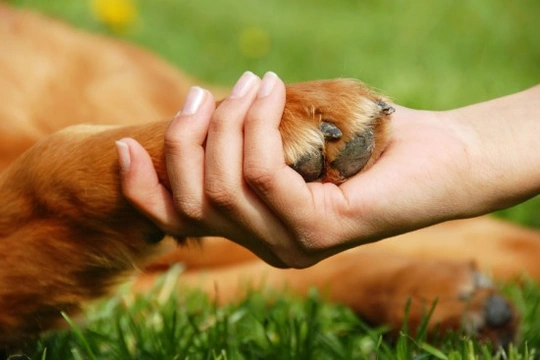
A Guide to Dogs - for Non Dog Lovers
Now I guess if you didn't like dogs you wouldn't be looking at this section of this particular website. But if you know someone who would prefer to avoid dogs, whether due to fear, an allergy, believing they are unhygienic, or any other reason, then this guide is for them - get them to have a look. Hopefully, it will make them feel more confident in situations where they do meet a dog - whether the dog is friendly or not. For those who don't like dogs, an over-enthusiastic, bouncy one can be as intimidating as an aggressive one, and may even cause accidental injury.
Statistics
According to a report on www.telegraph.co.uk in January 2012, in the 12 months leading up to the end of March 2011, just over 6000 dog attack incidents were reported (via the numbers of victims attending NHS A& E departments in the UK). Three out of four of these incidents took place on private property. Also, it is thought that about 12 Royal Mail workers are attacked by dogs each day. So while these numbers are significant, and don't include more minor incidents which didn't require hospital treatment, it is worth reminding dog lovers and non dog lovers alike that while it is worth being cautious around other people's dogs, the risk of a serious attack is relatively small. And you can take steps to help protect yourself from unwanted canine attention.
Relax
I know this is easier said than done, but it really does help. A dog can sense stress and anxiety and will react to it. This can make an already excitable dog more boisterous or a timid dog more fearful and possibly even aggressive. So do whatever it takes, deep breathing for example, to calm yourself.
Voice
Try to sound relaxed too. That means no shouting, screaming or shrieking. Telling a dog to stop, get down, go away etc is highly unlikely to work if you sound like you're panicking, even if you are using a word or phrase that the dog understands. So if you can't manage a calm voice, say nothing at all.
Eye Contact
This is far more significant for dogs than for us as a means of communication. And lack of eye contact is just as important too. Looking a dog directly in the face can be interpreted either as a) an invitation to come and see you, particularly if the dog is friendly and confident or b) a threat, particularly if the dog is already aggressive or fearful. So if you don't want to attract a dog's attention in any way, do not make direct eye contact. Look out of the corner of your eye to see where he is and what he's doing.
Ignore
This is a very useful and powerful tool with dogs. So, as well as no eye contact, ignoring means no speaking or touching. Most dogs will get the message that their attention isn't wanted and will leave you alone, preferring to spend their time and energy on someone or something else. Some dogs though, are more stubborn and won't give up straight away, perhaps trying some other way to get your attention eg bringing toys or jumping up. Keep ignoring him, perhaps standing up or calmly moving away if necessary.
The Dog's Owner
This may be more tricky than dealing with the dog! A dog won't be offended at being ignored and certainly won't hold a grudge. In fact, they should respect your ability to remain cool, calm and aloof - that's how a pack leader behaves and you might even find that an ignored dog chooses to sit quietly next to you, acknowledging this. The owner, however, may not view it in the same way. They see their dog as lovely, friendly, harmless etc even if a bit boisterous, so may be offended that everyone else doesn't feel the same way. Most responsible owners will understand that not everyone likes dogs but there will always be the odd few who just don't get it. How you deal with this depends on the situation.If the owner is a friend and meeting their dog is a regular occurrence, you may just have to bite the bullet and discuss the situation, politely asking that the dog is kept away from you. If ignoring the dog seems to work though, and your friend doesn't mind, that would be a good solution all round. You might even get to the stage where, once the dog is calm around you, you can call him to you for a fuss or food treat, if you want to. But you can stop and return to ignoring when you choose, or if the dog starts to get over-excited again. If the dog's owner isn't a friend, perhaps a one-off encounter, politely ask them to remove the dog, simply saying that you're not a dog lover (or even use a little white lie that you have an allergy) and thank them for their co-operation. But it really isn't worth getting into an argument over their or their dog's behaviour. As already described, keeping everything calm and stress-free is better for everyone, including the dog. If you have serious concerns about a dog's behaviour ie being a nuisance or even a danger in public, report it to the council dog warden (contact details will be available on your local council's website, possibly under environmental services) or contact your local police station for advice.



